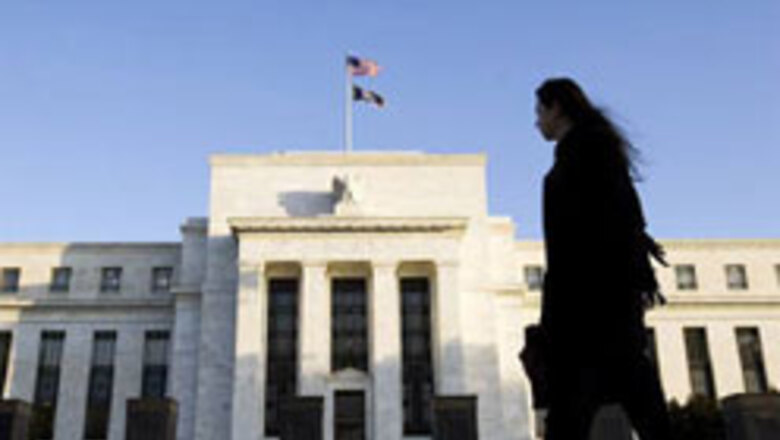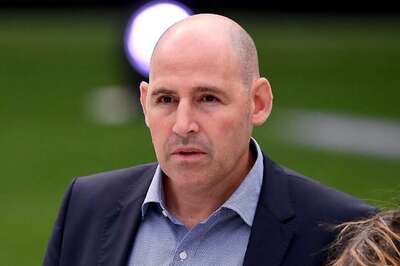
views
Washington: The Federal Reserve cut US interest rates by a half-percentage point on Wednesday to the lowest level since June 2004 as it tried to stave off a prolonged recession, and left the door open to further reductions if needed.
The Fed's unanimous decision takes its target for overnight bank lending to 1.0 per cent. Wall Street was united in believing the Fed would lower rates, although views were split on the likely size of the move.
"The pace of economic activity appears to have slowed markedly, owing importantly to a decline in consumer expenditures," the Fed said.
"Moreover, the intensification of financial market turmoil is likely to exert additional restraint on spending." The Fed has fought the credit crisis with a series of measures aimed at pumping liquid funds into markets that had become largely frozen and risk averse.
Policy-makers highlighted those steps in their statement and said they should help "over time." Nonetheless, they concluded that "downside risks to growth remain," keeping in play the option of further rate cuts.
A Reuters poll of top bond firms found an even split on whether the Central Bank would cut rates further, but futures markets pointed to one more quarter-point reduction by year end. The Fed also toned down its language on inflation, saying only that it expected it to moderate in coming quarters, citing declines in energy and other commodity prices and "the weaker prospects for economic activity."
After an emergency interest rate cut earlier this month the Fed had suggested it still saw some risk inflation could flare. "The Fed appears to have buried its upside inflation risks," Michael Gregory, an economist with BMO Capital Markets in Toronto, wrote to clients. "Bottom line: No upside inflation risk, plus persistent downside growth risk, equals a policy bias to ease further."
Fears of an acute recession pushed US stock prices to five-year lows this month. Stocks see-sawed after the Fed's move but ended lower as a news report raised questions about General Electric's earnings outlook, taking the wind out of a late rally.
The US dollar posted its biggest one-day drop in 23 years, while prices for US Government bonds were little changed. The US Central Bank has cut benchmark overnight rates from 5.25 per cent in nine steps over the past 13 months to counter a financial crisis that started with the collapse of the US mortgage market and spread around the world.
China and Norway also lowered interest rates on Wednesday, and the Bank of Japan, the European Central Bank and the Bank of England are all expected to follow suit in coming days.
PAGE_BREAK
Shortly after announcing its decision, the Fed said that it had approved currency swap lines with Central Banks in Brazil, Mexico, South Korea and Singapore to help those countries combat the credit crunch by ensuring they had access to US dollars. It now has swap lines with 13 Central Banks.
In addition to cutting the overnight federal funds rate, the US Central Bank trimmed the discount rate it charges banks for overnight loans to 1.25 per cent from 1.75 per cent. US banks began to lower the prime rate they charge their best customers to 4.0 per cent from 4.5 per cent after the Fed's announcement. While the Fed's steps to alleviate credit market strains have begun to bear some fruit, US businesses and consumers looking ahead see an increasingly gloomy outlook.
The US labor market has shed jobs for nine consecutive months, industrial production has tumbled and consumer confidence has hit a record low. Economists expect a report on gross domestic product on Thursday to show the US economy contracted at an annualized 0.5 per cent rate in the third quarter, and many expect GDP to continue to shrink into next year.
"The expectation is (for) a long and deep recession in the US that will extend through most of 2009," Allen Sinai, chief economist for Decision Economics, told a conference on Monday. "The previous longest post-World War II economic downturns were 16 months each in 1973-75 and 1981-82. This one probably will be longer."


















Comments
0 comment